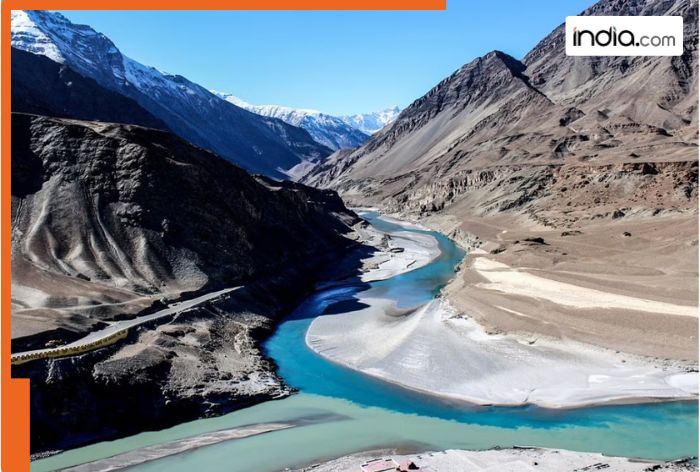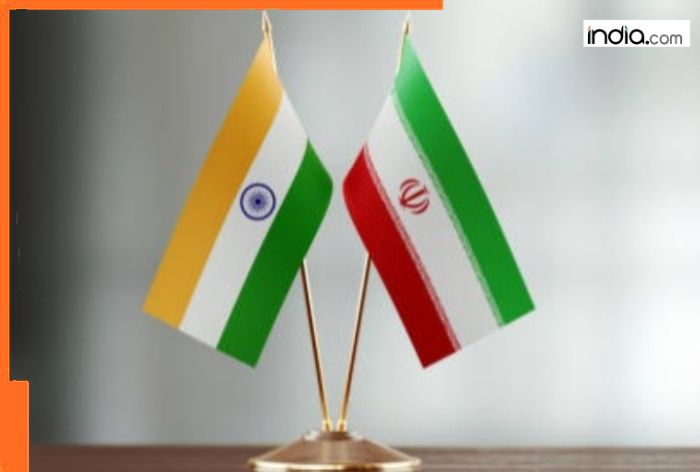When water becomes a weapon: India’s treaty suspension hits Pakistan hard
India’s decision to pause the Indus Waters Treaty is a bold, emotional response to the Pahalgam tragedy. It shows that India is done tolerating attacks linked to Pakistan.

On April 23, 2025, India launched a fearless resolution to stay the Indus Waters Treaty (IWT), a 65-year-prone settlement with Pakistan that governs how the two worldwide locations fragment the waters of the Indus River machine. This stream came a day after a horrific apprehension assault in Pahalgam, Jammu and Kashmir, the achieve 26 other folks, mostly tourists, had been killed. India’s government, led by High Minister Narendra Modi, linked the assault to Pakistan-based groups and determined to droop the treaty till Pakistan stops supporting injurious-border terrorism. But what does this mean for both worldwide locations, especially Pakistan? Let’s shatter it down in simple terms.
What's the Indus Waters Treaty?
The Indus Waters Treaty, signed in 1960, is admire a rulebook for sharing the water of six rivers—Indus, Jhelum, Chenab, Ravi, Beas, and Sutlej—between India and Pakistan. The World Bank helped dealer this deal after years of talks. Below the treaty:
– India will get rotund administration over the three “Eastern Rivers” (Ravi, Beas, Sutlej).
– Pakistan will get many of the water from the three “Western Rivers” (Indus, Jhelum, Chenab), nonetheless India can expend them for things admire hydropower and tiny irrigation.
– About 80% of the Indus machine’s water goes to Pakistan, while India will get 20%.
This treaty has been a rare success story, surviving three wars (1965, 1971, and Kargil in 1999) and loads of tensions. It ensures Pakistan’s agriculture, which is dependent closely on these rivers, will get passable water.
Why did India stay the Treaty?
The Pahalgam assault became a tipping level. India’s government says it has proof of “injurious-border linkages,” that strategy the attackers had been supported by Pakistan. The Cabinet Committee on Security, chaired by PM Modi, determined to hit attend now not easy. Remote places Secretary Vikram Misri launched that the treaty is “on preserve” till Pakistan stops backing terrorism. India additionally closed the Attari-Wagah border, expelled Pakistani diplomats, and banned Pakistani nationals from coming into India.
This isn’t the first time India has raised issues about the treaty. Last year, India asked for a review, citing Pakistan’s misuse of the treaty and India’s need for extra water for natty vitality and construction. But suspending it fully is an limitless step, something India has never carried out earlier than.
How does this accumulate an affect on Pakistan?
Pakistan’s financial system and survival rely on the Indus River machine. Right here’s how the stay may damage them:
- Agriculture in Crisis: Pakistan’s Punjab and Sindh provinces, its agricultural heartlands, count on the Indus, Jhelum, and Chenab for irrigation. About 80% of Pakistan’s farmland is relying on these rivers. If India restricts water trail with the stream, vegetation admire wheat, rice, and cotton may fail, leading to food shortages and higher costs.
- Water Scarcity: Pakistan is already dealing with a water disaster. Blockading or reducing water from the Western Rivers may compose drinking water scarce, especially in rural areas. Cities admire Karachi and Lahore may face even bigger problems.
- Financial Fallout: Agriculture employs almost half of of Pakistan’s group of workers and makes up a huge chunk of its financial system. A water cutoff may consequence in job losses, poverty, and financial instability. Pakistan’s exports, admire textiles, would maybe also rob a success.
- Energy Shortages : Pakistan uses river water for hydropower. Less water may mean extra energy cuts, that are already a local within the country.
What does it mean for India?
For India, pausing the treaty is a tough message to Pakistan: terrorism has penalties. It additionally presents India extra administration over the Western Rivers. Let's bear in mind:
– India can now make dams or retailer water on the Jhelum and Chenab without treaty restrictions, helping with flood administration and irrigation in Jammu and Kashmir.
– It strengthens India’s space as the upper riparian (upstream) country, giving it leverage over Pakistan.
But there are dangers for India too:
– Global Backlash: The World Bank, a treaty signatory, may raise issues. Diversified worldwide locations may look India’s stream as aggressive, affecting its global image.
– Escalation with Pakistan: Pakistan may retaliate, per chance by worldwide courts or by escalating tensions alongside the border.
– Precise Factors : The treaty has no exit clause, so suspending it may maybe consequence in real challenges. Pakistan may question arbitration, though India’s stance is that terrorism voids the treaty’s spirit.
What occurs next?
Pakistan’s leaders are meeting this day, April 24, 2025, to predicament their response. They are able to allure to the World Bank or the United Worldwide locations, claiming India’s stream is in opposition to the law. They'd strive to rally worldwide increase, though Pakistan’s global isolation may compose this tricky. Some consultants warn that Pakistan’s water disaster may irritate internal months, especially all the blueprint in which by the summer season when water question peaks.
For India, right here's a high-stakes gamble. The federal government is betting that the treaty’s suspension will stress Pakistan to crack down on apprehension groups. Alternatively it’s additionally a check of India’s diplomatic skill—can it define this stream to the sector while managing tensions with Pakistan?
A Sturdy nonetheless needed step?
India’s resolution to stay the Indus Waters Treaty is a fearless, emotional response to the Pahalgam tragedy. It reveals that India is carried out tolerating attacks linked to Pakistan. For Pakistan, the penalties will be devastating—its farms, financial system, and other folks rely on the rivers India now holds leverage over. But this stream additionally dangers escalating an already tense relationship.
As an Indian, it’s now not easy now to now not truly feel a mixture of pride and distress. Pleasure because our government is taking a stand in opposition to terrorism. Anguish because water is life, and cutting it off may damage hundreds of hundreds of stylish Pakistanis who accumulate little to terminate with their government’s actions. The hope is that this stay pushes Pakistan to rethink its strategies, nonetheless the avenue ahead seems to be bumpy for both worldwide locations.
( The author Girish Linganna of this text is an award-a hit Science Author and a Defence, Aerospace & Political Analyst based in Bengaluru. He is additionally Director of ADD Engineering Elements, India, Pvt. Ltd, a subsidiary of ADD Engineering GmbH, Germany. You may reach him, at: [email protected] )
What's Your Reaction?




















































